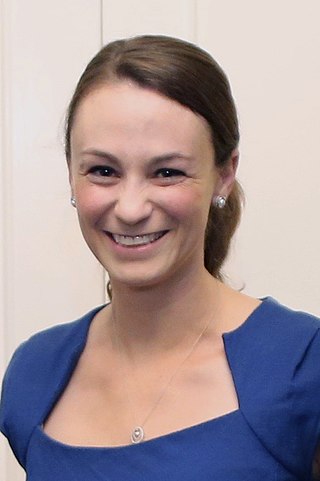In international relations,the liberal international order (LIO),also known as the rules-based international order (RBIO),or the rules-based order (RBO),describes a set of global,rule-based,structured relationships based on political liberalism,economic liberalism and liberal internationalism since the late 1940s. More specifically,it entails international cooperation through multilateral institutions and is constituted by human equality,open markets,security cooperation,promotion of liberal democracy,and monetary cooperation. The order was established in the aftermath of World War II,led in large part by the United States.

Robert Jervis was an American political scientist who was the Adlai E. Stevenson Professor of International Politics in the Department of Political Science at Columbia University. Jervis was co-editor of the Cornell Studies in Security Affairs,a series published by Cornell University Press.

The School of International and Public Affairs (SIPA) is the international affairs and public policy school of Columbia University,a private Ivy League university located in Morningside Heights,Manhattan,New York City. It is consistently ranked one of the leading graduate schools for international relations in the world. SIPA offers Master of International Affairs (MIA) and Master of Public Administration (MPA) degrees in a range of fields,as well as the Executive MPA and Ph.D. program in Sustainable Development.
Merit E. Janow is a professor in the practice of international trade and dean at Columbia University's School of International and Public Affairs from 2013 to 2021.
Daniel H. Rosen is an American business executive,academic and author. He is an expert on the Chinese economy.
Bonnie S. Glaser is managing director of the Indo-Pacific Program at the German Marshall Fund of the United States. She was previously a senior adviser for Asia and the founding director of the China Power Project at the Center for Strategic and International Studies. Glaser is also a non-resident fellow with the Lowy Institute in Sydney,a senior associate with CSIS Pacific Forum,and a consultant for the U.S. government on East Asia. Glaser writes extensively on Chinese policy,including its foreign and military policy towards the United States.,Cross-Strait relations,China's relations with Japan and Korea,Chinese perspectives on missile defense,and multilateral security in Asia.

Sheena Elise Chestnut Greitens is an American political scientist currently serving as an associate professor in the Lyndon B. Johnson School of Public Affairs at the University of Texas at Austin. She was First Lady of Missouri from 2017 to 2018.
Paul K. MacDonald is an American political scientist and a professor of political science at Wellesley College. He is known for his research on global power politics,U.S. foreign policy,and the political and military dimensions of overseas expansion.
Robert Lowell Powell was a political scientist. He was the Robson Professor of Political Science at the University of California,Berkeley. In the field of international relations,he made influential contributions regarding the application of game theory to war and political violence.

Ely Stefansky Ratner is an American political scientist currently serving as Assistant Secretary of Defense for Indo-Pacific Security Affairs in the Biden administration.

Timothy James Colton is a Canadian-American political scientist and historian serving as the Morris and Anna Feldberg Professor of Government and Russian Studies at Harvard University. His academic work and interests are in Russian and post-Soviet politics. He is currently an editorial board member for World Politics and Post-Soviet Affairs. He has been a fellow of the American Academy for Arts and Sciences since 2011. He is the brother of former CBC Radio Washington,D.C. correspondent,Michael Colton.
Thomas Paul Bernstein is an American political scientist and specialist in the Chinese political economy and communist systems. He is an emeritus professor at Columbia University.
Jessica Chen Weiss is an American International relations scholar specializing in China–United States relations. She is currently the Michael J. Zak Professor for China and Asia-Pacific Studies at Cornell University's government department and Senior Fellow in Chinese Politics,Foreign Policy,and National Security at Asia Society Policy Institute's Center for China Analysis.

Laura Rosenberger is an American diplomat currently serving as Chair of the American Institute in Taiwan (AIT). She formerly served as Special Assistant to the President and Senior Director for China and Taiwan at the National Security Council in the Biden administration.
Rush Doshi is an American political scientist currently serving as Deputy Senior Director for China and Taiwan at the White House National Security Council. Previously,he was founding director of the China Strategy Initiative at the Brookings Institution.
Zack Cooper is an American national security and foreign policy analyst currently serving as a senior fellow at the American Enterprise Institute (AEI),an adjunct assistant professor at Georgetown University,and a lecturer in Public and International Affairs at Princeton University. He also serves on the advisory boards of the Open Technology Fund and the Foundation for Defense of Democracies' Center on Sanctions and Illicit Finance.
Ryan Hass is an American foreign policy analyst currently serving as director of the Brookings Institution's John L. Thornton China Center and the Chen-Fu and Cecilia Yen Koo Chair in Taiwan Studies.
Jude Blanchette is an American foreign policy analyst and China specialist currently serving as Freeman Chair in China Studies at the Center for Strategic and International Studies (CSIS).
Carl Minzner is an American legal scholar currently serving as Professor of Law at Fordham Law School and a senior fellow in China studies at the Council on Foreign Relations. His research focuses on politics,rule of law,and governance in China.
Thomas J. Wright is an American international relations scholar currently serving as Senior Director for Strategic Planning at the United States National Security Council (NSC) in the Biden administration. He was part of a team instrumental in putting together the 2022 U.S. National Security Strategy,released in October 2022.






